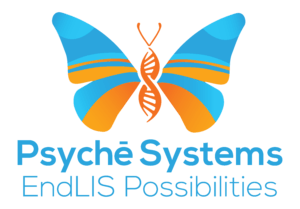In the world of diagnostic laboratory testing, there are many subfields where lucrative labs can offer testing services for medical providers for gastrointestinology testing. Health care providers might suspect a patient is suffering from a minor or severe gastrointestinal condition. We refer to these as GI diseases or disorders. Unexplained gastrointestinal symptoms can often be related to a more severe GI condition that a patient isn’t aware of. Often, medical offices require diagnostic tests to reveal inconsistencies in a patient’s GI tract. Gastrointestinology testing is a valuable resource that can reveal GI diseases that are causing a patient discomfort and illness.
There is a wide range of diagnostic tests that your lab might want to provide to health care network providers near you. However, getting started with gastrointestinlogy testing also requires the right medical software systems to support your systems. In today’s post, you will learn all you need to know about the basics of gastrointestinology testing from Psychē Medical Laboratory Software Solutions. You can also learn more by visiting our website or contacting one of our customer service representatives.
Gastrointestinology Testing 101
Gastrointestinology testing is an important contribution to the medical field. Labs across the country are benefiting from providing local medical facilities with reliable testing options. Procedures can also range in how you perform them. As a result, they can include both invasive and non-invasive tests. Some tests are more complex; however, others are quick and simple. Regardless of which testing your lab provides from local medical facilities, the GI testing field is expanding rapidly.
The basic premise behind GI testing is to help medical professionals learn the causes, symptoms, and potential treatments for patients suffering from different GI-related health conditions. GI conditions can be both minor and severe. In some cases, GI conditions grow worse in the presence of other pre-existing conditions. In other cases, they can make other conditions worse, acting as a catalyst. Therefore, it’s important for medical professionals to accurately gain information regarding GI conditions in patients, even if the symptoms appear minor.
Categorizing Gastrointestinology Testing
There is not one set-in-stone manner of categorizing gastrointestinology testing. Some people list different diagnostic tests by the region of the GI tract they affect, and others by the severity of related conditions. For the sake of starting up your testing laboratory, it can be useful to dive deeper into different tests for conditions within various regions of the GI tract. However, offering tests from one area of the GI tract does not limit your lab from offering tests for other regions as well. A strong diagnostic lab with the right medical software can offer comprehensive tests with both non-invasive and invasive procedures.
Upper and Lower Tracts
One way you can think about different gastrointestional tests is by where you conduct them on the human body. You might test on the upper or lower GI tracts of the body.
Upper GI issues might include conditions related to swallowing, chewing, and the very early stages of active digestion within the body. For the sake of this post, we won’t go into great depth about each of the different upper GI tract-related tests your lab might provide local practitioners. However, it’s useful to take note of these tests for future reference if your lab does decide to investigate gastrointestinology testing in more depth. Possible upper GI tract-related testing processes might include gastroscopy, barium swallow testing, endoscopic retrograde cholangiopancreatography or ultrasound testing, and pH monitoring.
Similarly, several GI issues solely target the lower GI tract. These tests relate to the later stages of digestion and excretion within the human body. Tests that you might require for a patient suffering from these GI issues include colonoscopy and barium enema. Furthermore, you might offer capsule endoscopy or anorectal manometry testing.

Knowing Where to Start
Knowing where to start in the field of gastrointestinology testing can seem daunting at first. However, all it takes is some research and insights from the latest medical practitioners. Of course, the right timing and the best medical laboratory software systems are also useful. It is essential to provide medical offices near you with the backing of trusted and secure medical software.
Medical-grade software configuration allows you to perform gastrointestinal testing on a larger scale. You can offer multiple medical facilities without falling behind on tests. You can truly become overwhelmed with the sheer volume of tests required if you aren’t prepared. Gastrointestinal testing is common since GI disorders are more common than discussed in the public sphere.
Learn More with Psychē Medical Laboratory Software
Starting your lab with gastrointestinology testing is possible today. If you are interested in learning more, we can help at Psychē Medical Laboratory Software Solutions. All you have to do is give us a call at 508-422-0157 or visit our website. Our services can provide you with everything you need to expand a current lab or start from scratch. We also have basic information for startup labs, vital software resources, and support from our IT experts.
At Psychē Medical Laboratory Software Solutions, we take great pride in being one of the nation’s leading medical software companies. We are dedicated to assisting labs across the country succeed, help others, and make the world a healthier place. Don’t hesitate! Learn what we can do for you today by contacting us!

